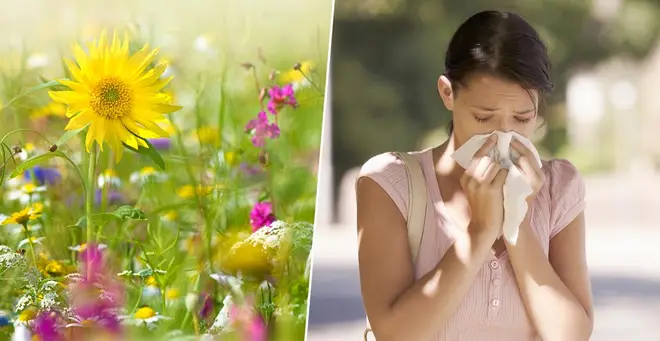Why is hayfever so bad this year 2020?
3 June 2020, 11:42

Why is my hayfever so bad? And is the pollen count higher? Here's what we know...
Hay fever sufferers might have noticed their allergies seem worse than usual in 2020, with many people even mistaking severe symptoms for coronavirus.
But it turns out there are some possible explanations for this, including climate change and pollution and the weather.
Why is hayfever so bad this year 2020?
Dr Hilary Jones recently appeared on Good Morning Britain to explain why hay fever sufferers have found May 2020 so unbearable.
According to the expert, the lack of rain and reduced pollution from cars during the UK's coronavirus lockdown has contributed to a particularly severe season.

The Best Ways To Combat Hayfever
He told Piers Morgan and Susannah Reid: “What we know is it’s been one of the driest Mays on record, so the pollen count is really high.
Read More: When is Primark going to reopen? And will there be a huge lockdown sale?
“And we also know that diesel particles particularly, pollution in other words, can combine with pollen in the atmosphere and drag it downwards.
“So there’s all sorts of reasons to do with pollution and the hot weather that hay fever is very common at the moment.”
Dr Hilary has also shared his tips for distinguishing between hay fever and Covid-19 symptoms.

While many people won’t experience any symptoms if they catch coronavirus, official symptoms include a new and persistent cough or fever, and a loss of sense of taste and smell.
Dr Hilary added: “If you think about your symptoms, you’ll know as someone who’s had hay fever before what it feels like to have hay fever, albeit not so badly as this year.
“If you think about the eyes, they’re red and itchy with hay fever, very rarely with coronavirus.”
Hay fever can also be affected by personal circumstances such as a change in diet or lifestyle.
What are hay fever symptoms?
According to the NHS website, common hay fever symptoms include:
- sneezing and coughing
- a runny or blocked nose
- itchy, red or watery eyes
- itchy throat, mouth, nose and ears
- loss of smell
- pain around your temples and forehead
- headache, earache
- feeling tired
Find out more here.
Now Read: Pubs hoping to reopen this month as breweries ‘set to deliver 250 million pints of beer’

































